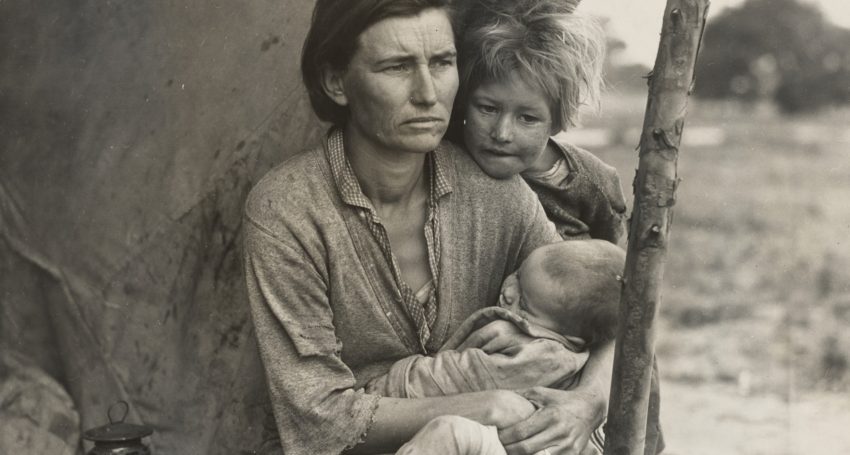How refugees and migrant workers are bearing the brunt of COVID-19
Features
“Whether we will continue to help the most vulnerable in this particularly challenging time is more a matter of moral and political will than of national capacity,” says Bishop Philip Huggins on the plight of refugees and migrant workers in the COVID-19 environment

The vulnerable are even more vulnerable in a health crisis; however, we are blessed that we are in a society which can help those most vulnerable.
Whether we will continue to help the most vulnerable in this particularly challenging time is more a matter of moral and political will than of national capacity.
Looking ahead now, there is gratitude, as well as need, amongst our migrant workers and refugees.
As regards gratitude, here are two brief stories.
Listening recently, I heard a South Sudanese woman turn to a friend who was complaining about some aspect of Australia.
She said: “Do you not remember what it was like to hear the bullets hit the house?”
“Do you not remember doubts about food for the family, absolutely no help nearby when the children became sick.
“Do you not remember these things anymore?”
Somewhat relatedly and from his own resolve, as a second story, a person from South Asia spoke so gratefully about the generosity of Australians.
“We are here,“ he said “because our corrupt and dysfunctional countries of origin do not care for their people. We are here because this country works. It looks after its own people and it gives newcomers an opportunity.”
The essential truth of these observations has been vivid in the way our governments, emergency workers, health services and, and in fact our whole community, have worked together this year.
First the bushfires, then COVID-19. What a start to a year. But yes, thankfully, this country fundamentally works.
Advertisement
Of course, we are far from perfect and more is needed to care for those at risk of falling through the cracks.
One continuing issue is that of racism, which is directed against vulnerable minority groups in our communities, including toward Aboriginal and Torres Strait islander peoples and people of Asian, African and Arab backgrounds. All too often, we also see associated prejudice directed at Muslims, Jews, Hindus and Sikhs.
This is all such a cruel folly! Here we are, gifted with life on a tiny planet in a 13 billion-(or so)-year-old cosmos, all bearing the divine image and likeness.
We are one human family and want all our loved ones to flourish. What we want for ourselves, we hope for everyone else! Why not? The divine image in us gives us this spark!
For disciples of Jesus, our trust in the divine providence and presence is celebrated in the Easter season and focused by the feast of Pentecost.
We pray, by the grace of Jesus, to live and walk in the Holy Spirit (Galatians 5.16-18).
Advertisement
This includes challenging racism and prejudice, as we help those who may otherwise face unnecessary suffering.
The National Council of Churches in Australia (NCCA), along with others, continues to advocate for the thousands of people seeking asylum who have been particularly affected by the industrial implications of COVID-19.
COVID-19 has caused much casual work to evaporate leaving these folks, who have no access to income support and many without access to Medicare, especially vulnerable.
Churches and other agencies of compassion are being stretched by the level of need at a time when fundraising has become more problematic due to face-to-face COVID-19 gathering restrictions.
Migrant workers, here on various temporary visas, also have emerging needs.
At the moment they cannot travel home and their capacity to send money back to their families, let alone provide for themselves, has also been reduced.
I am aware of one project between the Dioceses of Melbourne and Wangaratta to provide enhanced pastoral care for Melanesian migrant workers. This project is being shaped in partnership with Pacific Church leaders and the Pacific Council of Churches.
Readers may be able to recommend other such projects of practical pastoral care.
The Christian Conference of Asia held a recent webinar to try and improve care of migrant workers from Asia, both those internally and externally displaced.
They now face, in their millions, the consequences of poverty when there is no work to pay for food and shelter, nor to keep sending money home to family members, who may be utterly dependent on this income.
This is a huge issue in our Asia-Pacific region. Moreover, when migrant workers are trapped in crowded living conditions, they often lack access to COVID-19 testing, face masks and hand sanitiser. These factors and others, like poor nutrition, have an obvious consequence. COVID-19 will continue to spread in such circumstances, leaving more people vulnerable to lack of treatment options and possibly death.
In our relatively functioning society, the corollary of this brief picture of our current reality is that we need to expand policies and programmes to help the most vulnerable – both those we deliver domestically, as well as those offered for overseas aid and development.
My recommendation is that the time is now right for a review so that, in the divine providence, no one misses out!
Let’s inspire each other so we are a country and region where no one falls through the cracks.
Let’s become a more welcoming and generous country.
May our every intention be noble and good, bringing delight to our beloved Saviour as our thoughts, words and actions bring others hope, including through:
- New partnerships which are crucial, so we share resources and insights – like the partnership now between the Pacific Council of Churches, the National Council of Churches in Australia, Micah Australia and our Government.
- Advocating so all on Temporary Visas get Medicare and COVID-19 income support. No one should fall through the cracks!
- Advocating through Australian overseas aid that Australian Embassies and High Commissions give emergency assistance to migrant workers trapped ‘in‘ and ‘out‘ of their home countries because of COVID-19 restrictions and loss of employment.





